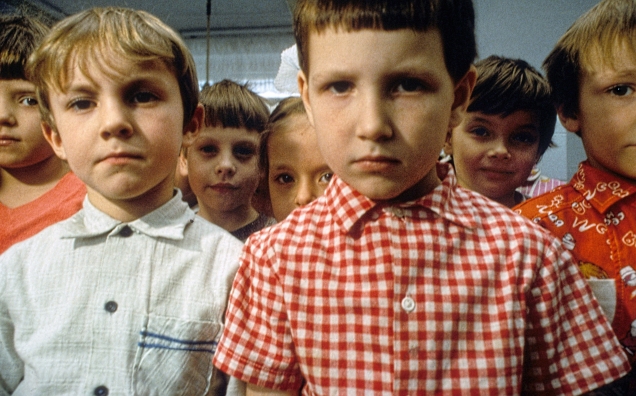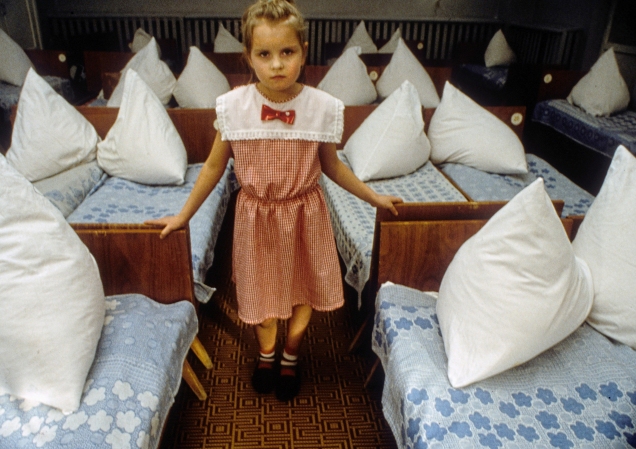Children at a Khabarovsk orphanage, Special School #10
NOVEMBER, 1992
Twice a day, thousands of Russians pour buckets of cold water over themselves. Some do it in their baths. Others, wearing bathing suits, drench themselves on city sidewalks or in parks. Even when winter temperatures drop below zero, they do this.
They do it because an old man with a great white beard, a man they call Ivanov the Teacher, said cold water brings people closer to nature and wards off sickness. His followers claim the old man, who died in the Ukraine nine years ago, made the blind see and the crippled walk. Some even say he was God.
On a particularly cold November day, I rode a public bus with five of his followers to an orphanage 20 kilometers south of Khabarovsk. My friend, Natasha Boldovskaya, an English language professor at the Khabaravsk teachers’ college, had invited me on the trip. The 99 orphans who live at Special School #5 gathered in the meeting hall to hear the followers preach about the cold-water way to health and salvation. The followers — four women and one man — sang about nature’s beauty and held up a large black and white photograph of Ivanov. They spoke about his rules: Wish the health of everybody you meet; don’t be greedy; fast on Saturdays; walk barefooted on the snow or ground every day; don’t smoke or drink alcohol; never spit on the earth.
“It’s not by chance that the Holy Spirit came into Ivanov’s body in Russia,” Natasha whispered to me. “There’s so much suffering here.”
The orphans — who don’t belong to any religion — listened politely. They’re used to such visits. The week before, two American missionaries came to perform scenes from the Bible. Perhaps next week Hare Krishnas will come and chant for the children, as they did for the children at Special School #10. Or maybe the foreign-born monks who wear orange robes and teach yoga every Sunday in a rented hall downtown. Or the Baptists from Atlanta who pass out little blue booklets titled, “Do You Know for Certain That You Have Eternal Life and Will go to Heaven When You Die?” Every week, the Aeroflot flight from America brings at least one clergyman with a box-full of Bibles. Russia is a good place to go if you’re on a mission from God.
Like the orphans, most adults here know little about religion. In 1922, the year the Communists took power in the Far East, there were 13 Russian Orthodox cathedrals in Khabarovsk. All were closed down or destroyed. The bishops and priests were either exiled or killed. Today, in this city of nearly 700,000, there’s only one church.
I recently asked a room of about 30 university students how many believed in God. Only two raised their hands.Vadim Uchaikin, a 19-year-old economics student, came up to me after class. “Communism was like a religion,” he said. “Now people are living in a spiritual vacuum. Now, we have nothing.”
The children at the orphanage are too young to understand this existential dilemma. “Who believes in God?” I asked. They all raised their hands. They seemed eager to believe in anything, even in the cold–water methods of Ivanov the Teacher.
I rode home with the followers. As usual, the bus was overcrowded. I stood the whole trip, my body pressed against the door. I peeked out the door window and amused myself with the passing scenery of concrete apartment buildings. We drove by a wire factory. At the entrance stood a large, red billboard bearing the stern face of Lenin. Most of these Communist billboards in Khabarovsk have been removed, but this one, for some reason, has remained. It read: “The Plans of the Party are the Plans of the People.” Later that afternoon we went to a follower’s apartment and watched video footage of Ivanov the Teacher leading his people on a barefoot walk in the snow.

